I'm going to do something that many people have done before, but I'll put my own unique twist on it: a reading list for right-wing intellectuals. This means you won't get any of that Ben Shapiro center-right "Pronouns are stupid, am I right?" or "Democrats are the real racists" nonsense here. These are five books, based on my admittedly limited reading experience, that I believe are essential for right-wingers to break away from the leftist zeitgeist of the 21st century.
Lawrence H. Keeley's War Before Civilization
The first proper book I ever read still holds a warm place in my heart. While this book and the next one are far from political, they challenge the established beliefs that "Everyone is the same man" and that "Native peoples were peaceful, noble savages living in harmony with nature." Nearly 30 years after the 1996 publication of this book, these ideas are still being pushed on us. It is surprising because Keeley is far from the only academic to debunk the noble savage narrative in great detail. Many Native Americans and other tribal peoples have criticized this narrative, viewing it as dehumanizing.
Yet, in my 2024 college human rights class, this narrative was still promoted. Keeley left no stone unturned in debunking this and other narratives surrounding pre-civilization warfare.
The first idea he challenges is that most pre-civilization societies were peaceful. In fact, only 7% did not engage in warfare on a yearly basis (Page 28). The tribes that did not engage in warfare were often very remote, had recently survived a massacre, or had made a subject people of a more aggressive tribe. Furthermore, even in these so-called pacifistic tribes, they were far from peaceful among their own. To quote from page 29:
"The Copper Eskimo, who appears as a pacifist society in the cross-cultural surveys just discussed, also experienced a high level of feuding and homicide before the Royal Canadian Mounted Police suppressed it. Moreover, in one Copper Eskimo camp of 15 families first contacted early this century, every adult male had been involved in a homicide."
Another part of the book, Chapter 5, "A Skulking Way of War," discusses primitive warriors versus civilized soldiers. This is something I believe more right-wingers need to realize: non-civilized soldiers, man for man, are often better than civilized soldiers in terms of ferocity and combat intelligence.
To quote from page 74:
"In the 1890s, the French fighting the Touareg of the Sahara met similar disasters (to the British fighting the Zulu) in open and survival attacks when behind solid walls. For example, at Goundom, 150 French soldiers with artillery behind a flimsy stockade of thorn bushes were destroyed by an equal number of Touareg. Germany's army too met embarrassing reverses when it fought the Hehe in Tanzania (1891-1898) and the Herero in the Nama tribesmen in Southwest Africa (1904-1907). In the latter case, the outcomes of fights were predictable: against stone walls and machine guns, the Hereros lost. When the Germans were caught in the open, the Hereros defeated them."
As with the Modocs in America, when African tribesmen could fight behind fortifications, they could hold off superior European forces for long periods, inflicting grievous losses on the attackers. In 1879, for example, 300 Pluthi tribesmen in a hilltop fortress held off 1,800 soldiers and artillery for eight months. Again, we find no clear evidence of the tactical superiority of civilized soldiers over primitive ones—only in the eternal advantages of fortifications and superior numbers.
I bring this excerpt up because I feel many people on the right believe non-civilized soldiers to be inferior, while in reality, the opposite could not be farther from the truth. This is something we need to realize in the increasingly violent and uncivilized world we find ourselves in.
Christopher L. Beckwith's The Scythian Empire
As stated previously, this is far from a right-wing book, but it does provide much-needed knowledge about the history of our great people, the Scythians (a.k.a. the Aryans), who shaped the history of every nation they encountered.
Unlike most steppe peoples of the Eurasian plains, the Scythians were far from the brutish Mongolians, Turks, or Magyars who inflicted unimaginable cruelty and barbarism. The Scythians ruled as mostly benevolent rulers, providing their subjects with horse-driven chariots, early forms of feudalism, monotheism, and elaborate dress.
It's important to note that much of the book doesn't actually discuss the Scythians but rather the Scythian-sized peoples such as the Median Persians and the Chinese. A good chunk of the book discusses Darius the Great, a man for whom I have developed great admiration. Also, a lot of it deals with languages and translations, making some parts rather dry.
My personal favorite section of the book discusses the Scythian influence in China, particularly regarding its first emperor, Qin Shi Huang, whose skeleton has not been examined since the Chinese government found multiple European-like skeletons around his grave. To quote from page 215:
"During the long fragmented Warring States period, Chinese-speaking people first began to use the Scythian word Hisa (Harya in West Scythian Aria) to refer to not only themselves but also their assumed ancestors—an ethnolinguistic romanticization of an imagined people who they logically concluded must predate the historic Shang Dynasty. According to later traditional Chinese concepts, these Hsia-Harya people must have had a monarchist system of government, as the Scythians certainly did, making the ancestral realm a Hsia dynasty or empire."
The Scythians didn't just build empires; they were also some of the first philosophers in human history. Anacharsis, Zoroaster, and most notably, the Buddha were all Scythians. This leads me to believe that it makes more sense to view the Buddha as white; there's no way someone with a 76 IQ could speak so intelligently and influence so many people.
Russell Kirk's Redeeming the Time
Now for our first authentically right-wing book, which ironically is not much of a book so much as a collection of essays that Russell Kirk wrote later in his life. It was published after his death.
For those unaware, Russell Kirk was the foremost thinker in American conservatism—specifically, a traditional conservative or what we would call today a paleoconservative. Kirk was viciously critical of the interventionist neoconservatives, who he once said had “mistaken Tel Aviv for the capital of the United States.”
Throughout these essays, he touches on many issues such as the fraud of multiculturalism, the increasingly degenerate media that children consume, and the philosophy of Edmund Burke, repeatedly. He also uses short stories from a variety of authors he has read to relay ideas. The most notable of these comes from Jacquetta Hawkes’ "The Units," which he discusses at length in the context of the injustice of inequality. To quote from pages 219 and 220:
God, having sensed no impulses from the Earth for a long while, dispatches a humble angel to investigate and report to him. This emissary, who had visited Earth once a long, long time ago, discovers on this later expedition that humankind has suffered a startling change for the worse. No longer indeed do men and women call themselves humans. They call themselves units. For all are united in a kind of subhuman state. Everybody, precisely like everyone else, these degenerate beings live in some 500,000 life units displaced about the globe and subsist by primitive agriculture. Private property has been abolished altogether. Every life unit consists of four standard tenements: the pink block for the young, the green block for the cultivators, the red block for individual workers, and the black block for the administrators and the government. Kinship and family life have been swept away as disruptive of social unity. If equality is the whole aim of existence, why should one person outlive another? There must be equality in death as in life; so on attaining the age of 66, the older units are herded into the finis chamber of the black block, suffocated there, and their bodies incinerated. Amusement in these life units communes is a coliseum sort of motodrome in which some of the performers bloody perish to the crowd’s satisfaction."
In short, through the doctrine of equality of condition, what once was the human race has transformed itself into a moral condition scarcely distinguishable from that of the beasts. Yet a few true human beings, eager to subvert this life in death, have somehow survived in life unit 1457. The resident angel learns that this handful of young people are contriving a system for inequality. Indeed, their slogan "Equality must be destroyed" prevails. The stupidity of the egalitarian administrators cannot resist the innovators. And in one life unit at least, inequalities are happily triumphant. But even so, the angel decrees some ideologue of equality is already poised to bring down equal misery. Thus, the struggle between the forces of individual achievement and the forces of equality continues in human societies. There are no lost causes because there are no gained causes.
I think about this tale regularly. I see it unfolding before my eyes every single day. This, along with the other short stories Kirk discusses, has made me reevaluate the use of fiction in a political sense.
Probably the most discussed of Kirk's essays within this book is “Libertarians Chirping Sectaries,” and for good reason, as it is the most brutal and honest critique of libertarianism, not just from a rightist perspective but in general. To quote from that essay on pages 280:
"The great line of division in modern politics, as Eric reminds us, is not between totalists on the one hand and liberals or libertarians on the other. Rather, it lies between all those who believe in some sort of transcendent moral order on one side and on the other side, all those who take this ephemeral existence of ours for the be-all and end-all, to be provoked cheesily to produce and consume in this. Discrimination between the sheep and the goats. The libertarian must be classified with the goats, that is, utilitarians admitting no transcendent sanctions for conduct. In effect, they are converts to Marx's dialectical materialism. Conservatives draw back from them on the first principle of all: in any society, order is the first need of all liberty, and justice may be established only after order is tolerably secured. But the libertarians give primarily to abstract liberty, conservatives knowing that liberty inches in some sensible object, are aware that true freedom can be found only within the framework of a social order, such as the constitutional order of these United States. In exalting an absolute and undefinable 'liberty' at the expense of order, the libertarians impair the very freedom they praise." What binds society together? The libertarians reply that the cement of society, so far as they will endure any binding at all, is self-interest closely joined at the nexus of cash payment. But conservatives declare that society is a community of souls joining the dead to the living and those yet unborn, and that it coheres through what Aristotle called friendship and what Christians called love of neighbor.
Kirk's devout conservatism is something that we need now more than ever.
Paul Gottfried's Multiculturalism and the Politics of Guilt
A book that is nearly 23 years old and yet still so relevant today.
The basic thesis of the book is how the managerial and therapeutic state uses the excuse of caring for a reason to have a power grab—adding more jobs to the managerial regime and creating more social programs to help so-called oppressed peoples.
A significant portion of the book discusses guilt, particularly white guilt, and how the government uses it to control the masses. It examines how they continue to demonize white people for the actions of the past while expecting them to abandon all collective identity to create a utopian multicultural paradise.
My personal favorite portion of the book is when Gottfried calls out historical double standards and hypocrisy: how white people are expected to self-flagellate while everyone else gets a free pass. To quote from pages 62-63:
"Exemplifying the power of multicultural concepts to influence political celebrities independently of tangible career interests is a speech given by Bill Clinton to the student body at Georgetown University on November 7, 2001. The former president dwelt on the terror that had existed in the United States for hundreds of years and on how 'the nation is paying the price for its support of slavery and for looking the other way when a significant number of Native Americans were dispossessed and killed.' Here in the United States, we were founded as a nation that practiced slavery, and slaves quite frequently were killed, even though there were innocent."
Moreover, "in the First Crusade, when the Christian soldiers took Jerusalem, they first burned a synagogue with 300 Jews in it and proceeded to kill every woman and child who was a Muslim on the Temple Mount. I can tell you that this story is still being repeated today in the Middle East, and we are still paying for it." (God, I hate Bill Clinton so much. I hope he's skinned alive. Gottfried's not saying this; I am.)
Clinton overstates his case that the American and European Christian past has been characterized by continuing reckless violence against certain minorities now featured as multicultural victims. Even assuming black slaves were abused in the United States (though no more than elsewhere), it is questionable whether their masters killed them in great numbers, given the fact that they represent a heavy investment of money. It is even more questionable that those living in the United States today bear personal responsibility for a mode of economic production that marked all of human civilization until the modern age, except for most of the Christian West where slavery was ended early.
As for Clinton's thumbnail sketch of the Crusades, it is remarkable for what it omits more than for what it includes. Having defenders of Turkish-occupied Jerusalem—whether Muslims or Jews—slaughtered indiscriminately after the capture of the city in the First Crusade is regrettable but not surprising, given the savage nature of the struggle on both sides. What is left out of the account are the unprovoked attacks on Rhineland Jews carried out by crusaders en route, and the far more ghastly but irrelevant from the standpoint of multiculturalism, massacres of tens of thousands of Eastern Christians during the Fourth Crusade. It was, by the way, the Turkish assault on the Christian Byzantine Empire, in which Muslims massacred Christians, that spurred the Crusades as a response to Muslim aggression. Perhaps Clinton does not know or care to recall that Muslim rulers occupied large chunks of the Balkans after being pushed out of Central Europe until the end of the 19th century. Christians who inhabit those regions tell stories of atrocities committed by Muslims against their families far more recently than the First Crusade."
The entire book, every page, contains some kind of truth bomb regarding modern leftism, which has not changed much in the last 23 years.
James Burnham's The Machiavellians: Defenders of Freedom
Last, but certainly not least, we have perhaps the most rigidly right-wing book of the bunch. This relatively short book offers many refutations of liberal theology and profound arguments in favor of right-wing or radically right-wing ideologies.
The author of the more well-known The Managerial Revolution, a book that just barely missed the list, Burnham showcases a history of Machiavellian thought, or what we may call today realpolitik. It presents the most raw and human interpretation of politics I have ever seen. Much of the book discusses other great thinkers such as Gaetano Mosca, Georges Sorel, Robert Michels, and Vilfredo Pareto (whom I personally believe is the most politically intelligent and relevant to modern-day politics of any of these men), and of course, the great Machiavelli.
To summarize this book, I will now quote from pages 203-205:
‘‘Objective science of politics and of society, comparable in its molds to the other empirical sciences. It is possible such a science will describe and correlate observable social facts. Based on facts of the past, it will state more or less probable hypotheses about the future. Such a science will be natural with respect to any particular political goal. Like any other science, its sentiments will be tested by facts accessible to any observer, rich or poor, ruler or ruled, and will in no way be dependent upon the acceptance of some particular ethical aim or idea. (Contrary views hold that a science of politics is not possible because of the peculiarity of “human nature” or for some similar reason, or that political analysis is always dependent upon some particular program for improvement—or destruction—of society, or that any political science must be a class science, true for the bourgeoisie but not for the proletariat, as Marxists claim.)
The primary subject matter of political science is the struggle for social power in its diverse and concealed forms. (Contrary views hold that political thought deals with the general welfare, the common good, and other social entities that are invented by theorists from time to time.)
The laws of political life cannot be discovered by an analysis that takes men's words and beliefs, spoken or written, at face value. Words, programs, declarations, constitutions, laws, and philosophies must be related to the whole complex of social facts in order to understand their real political and historical meaning. (The contrary view pays chief attention to words, believing that what men say they are doing or propose to do is the best evidence for what they actually do.)
Logical or rational action plays a relatively minor part in political and social change. It is delusional to believe that in social life, men take deliberate steps to achieve consciously held goals. Non-logical action, spurred by environmental changes, instinct, impulse, and interest, is the usual social rule. (The contrary views assign an important or primary place to rational action, conceiving history as the record of rational attempts by men to achieve their goals.)
For an understanding of the social process, the most significant social division to be recognized is that between the ruling class and the ruled, between the elite and the non-elite. (Contrary views either deny that such a division exists or consider that it is unimportant, or believe that it is scheduled to disappear.)
Historical and political science is, above all, the study of the elite: its composition, its structure, and the mode of its relation to the non-elite. (Contrary views hold that history is primarily the study of the masses or of an individual great man, or primarily of institutionalized arrangements.)
The primary object of every elite or ruling class is to maintain its privilege and power. (The contrary view holds that the primary object of the rulers is to serve the community. This view is almost invariably held by all spokesmen for an elite, at least with respect to the elite for which they are speaking. Among such spokesmen are to be numbered almost all of those who write on political or social matters.)
The rule of the elite is based upon force and fraud. The force may, to be sure, be much of the time hidden or only threatened, and the fraud may entail conscious deception. (The contrary view holds that social rule is established fundamentally upon God-given or natural right, reason, or justice.)’’
I'm sure many of my subscribers will see that not much has changed in the political landscape since 1943.


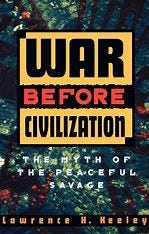
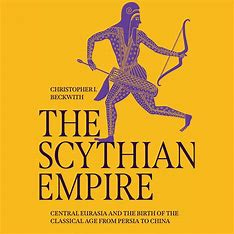
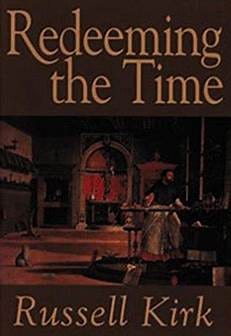
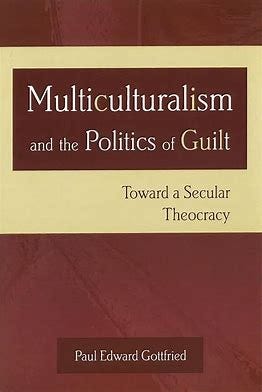
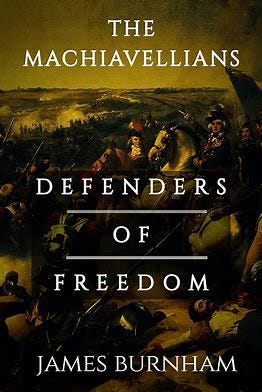
Pls enable voice reading
The Dunning-Kruger effect describes a cognitive bias where individuals with low ability in a specific area tend to overestimate their competence in that area, while those with high ability may underestimate their skills. This bias is rooted in a lack of self-awareness and metacognition, the ability to understand one's own thinking and performance.